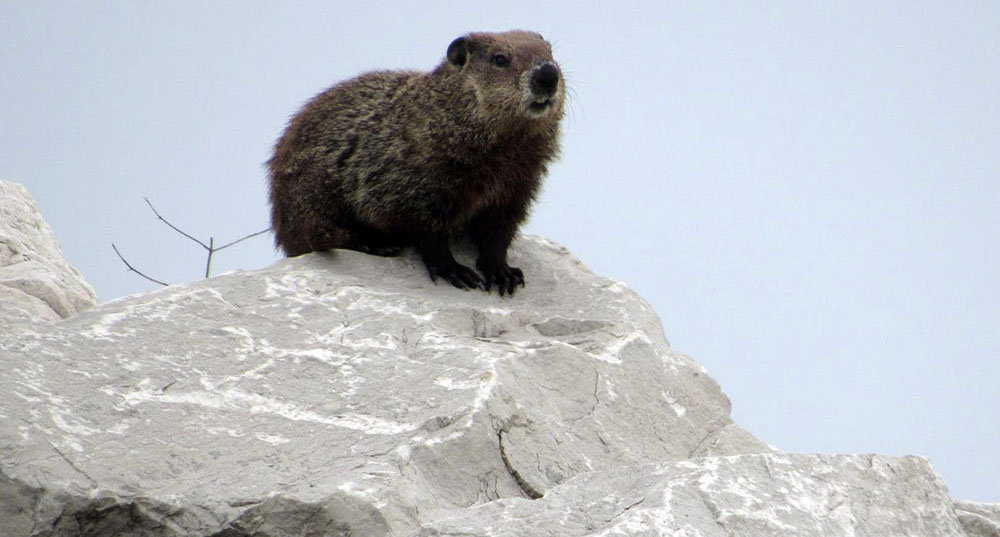
Groundhog Day at Lakeshore State Park!
February 13, 2023 | Topics: Events
By Leah Anderson
Photography by Eddee Daniel
The groundhog declined to appear during our hike in the park on Groundhog Day. But we knew that would be the case. Why? Well, I’m getting ahead of my story. You see, Groundhog Day as we know it in the United States originated in Punxsutawney, Pennsylvania in 1887 as a publicity stunt. However, the celebration of that day has ancient roots. February 2 is the midway point between the winter solstice and the spring equinox. It originated as the Gaelic pagan celebration known as Imbolc, but has been transposed onto Christian holidays in Northern Europe, including Candlemas, the day folks brought their supplies of candles to their parish priest to be blessed.
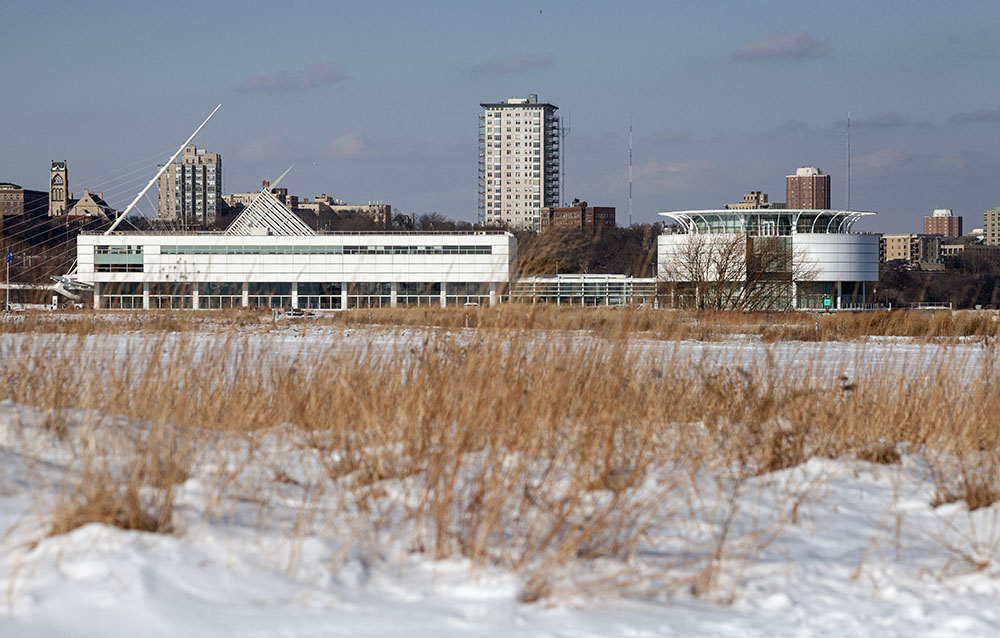
The day eventually took on meteorological dimensions, with the understanding that if it was dark and rainy, spring was on its way; but if it was sunny and bright, a second winter was on its way. Animals were eventually incorporated into this mythology. In Germany, hedgehogs became the official weather prognosticators for February 2. When the Pennsylvania Dutch (who were German) immigrated to the United States, groundhogs took the place of hedgehogs.
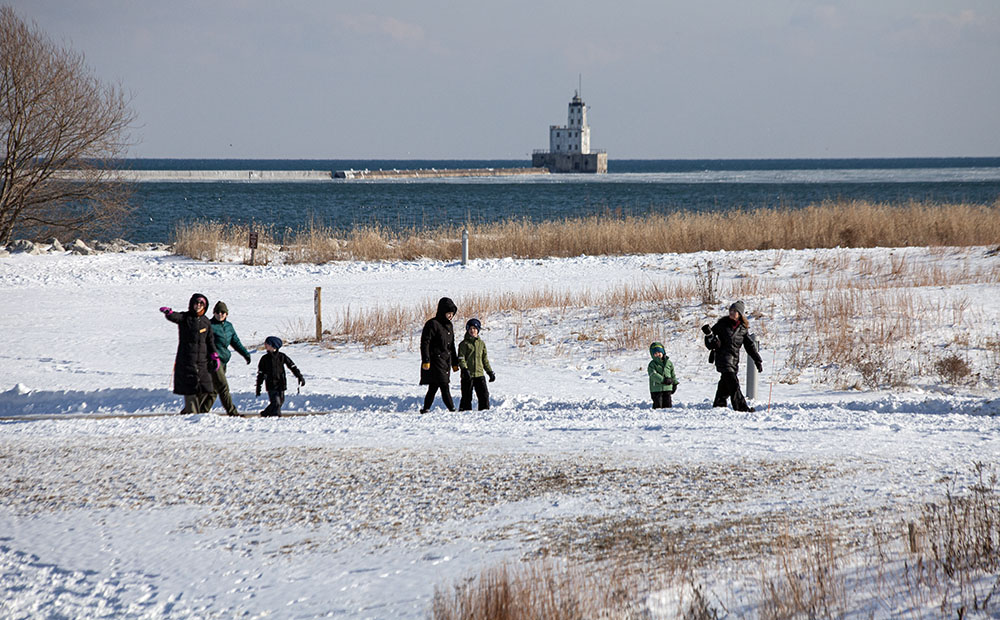
At Lakeshore State Park, we have a very handsome and fairly sociable groundhog in residence. Spring through Fall, visitors can often find him sunning himself on the limestone boulders lining the park. He is happy to stay where he is when human beings come by, but will run for cover if dogs are present.
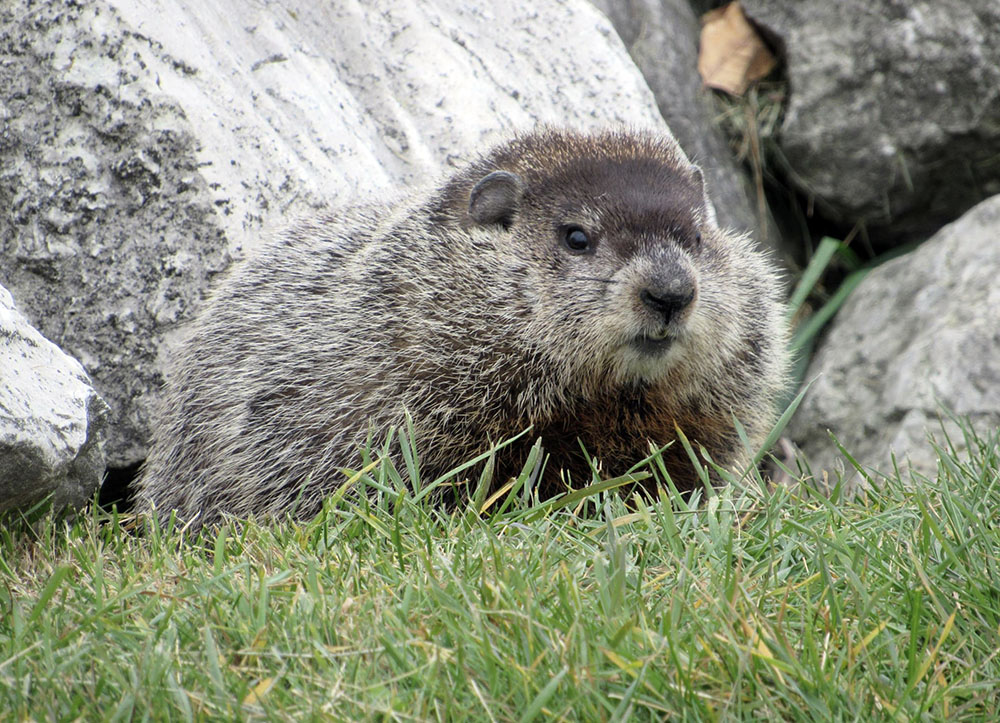
Now, to answer the question about why our groundhog declined to appear for our hike: On this February 2, like every February, our groundhog was still in hibernation. Groundhogs, unlike bears for example, are true hibernators. They sleep all winter. They slow their metabolism so drastically during the winter months that their hearts beat just four to five times a minute, as opposed to 80-100 beats the rest of the year. They breathe just twice a minute as opposed to the sixteen breaths they take when outside of their burrows. Though they are solitary burrowers, other animals make use of hibernating groundhogs’ extensive tunnels, unbeknownst to them! In early spring, male groundhogs leave their burrows first to pay visits to female groundhogs who are still hibernating in their burrows. But mating doesn’t begin until both have emerged and begun recovering from their long winter nap.
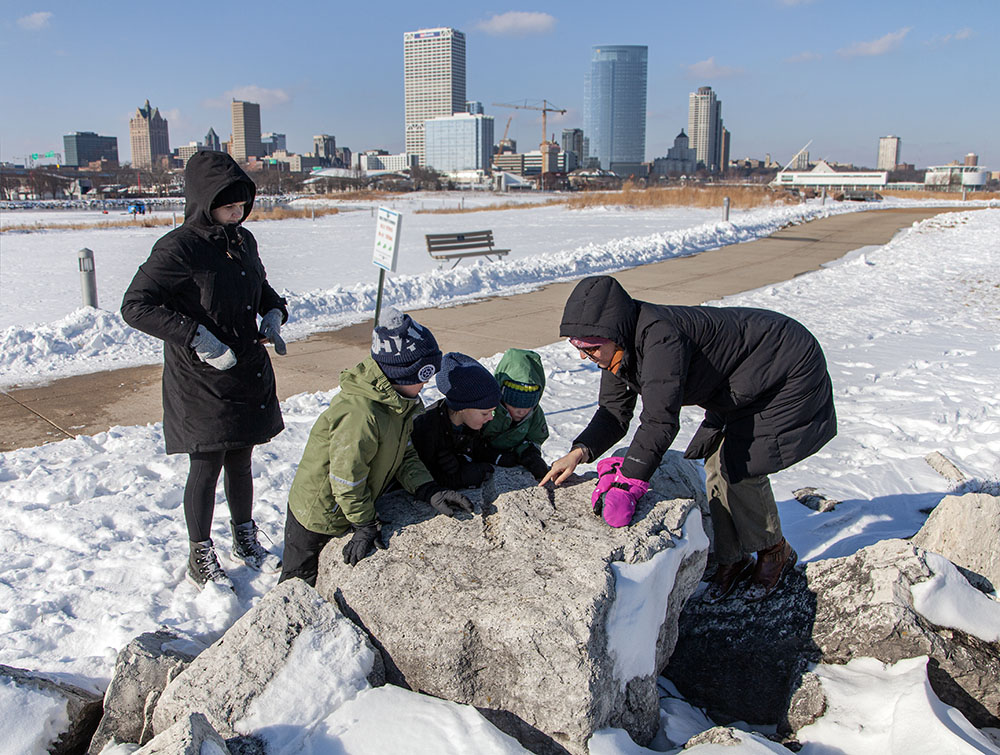
Although our groundhog (we usually call him a woodchuck, but the names designate the exact same animal) was fast asleep for winter, there was still much to see on our hike. Some of the limestone boulders bear witness to ancient history, revealing surprising fossils to those who pay close attention. In addition to the bountiful coral fossils which form the basis for the boulders, we saw cephalopods, the ancient relatives of chambered nautiluses; brachiopods, or lamp shells; crinoids, or sea lilies; and several worm tube trace fossils.
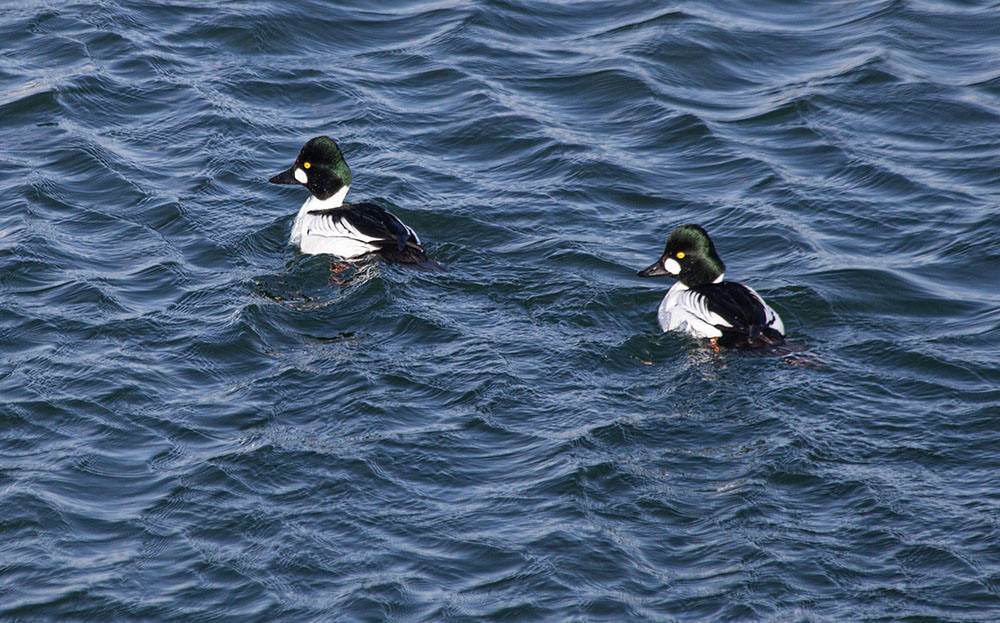
The unfrozen water surrounding Lakeshore State Park was alive with migratory waterfowl, such as goldeneyes. Greater and lesser scaup as well as several varieties of mergansers are also among the visitors to our shores. These birds fly South from the Arctic to find open water and once here, dive for fish, and even for the invasive zebra and quagga mussels that blanket the floor of Lake Michigan.
Whatever the season, there is always something beautiful to see at Lakeshore State Park.
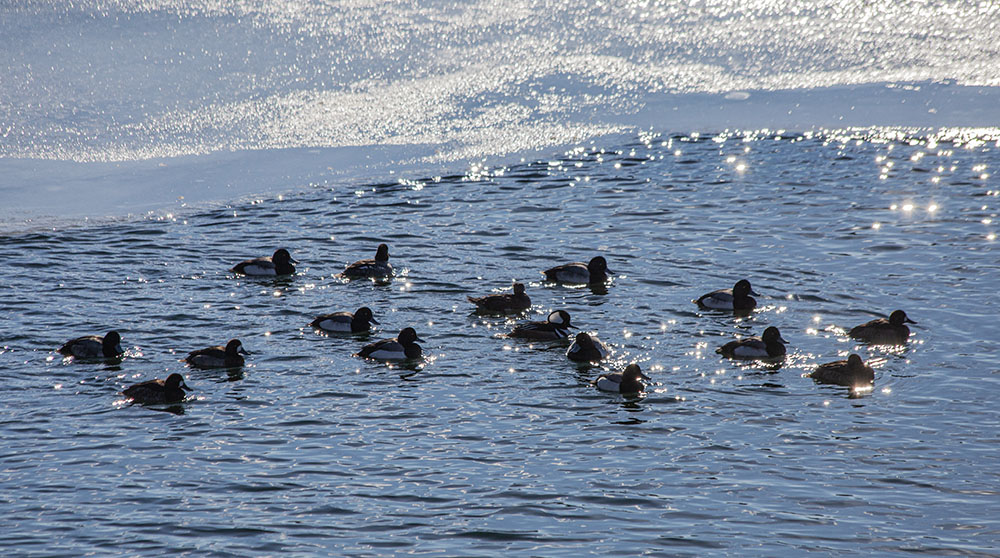
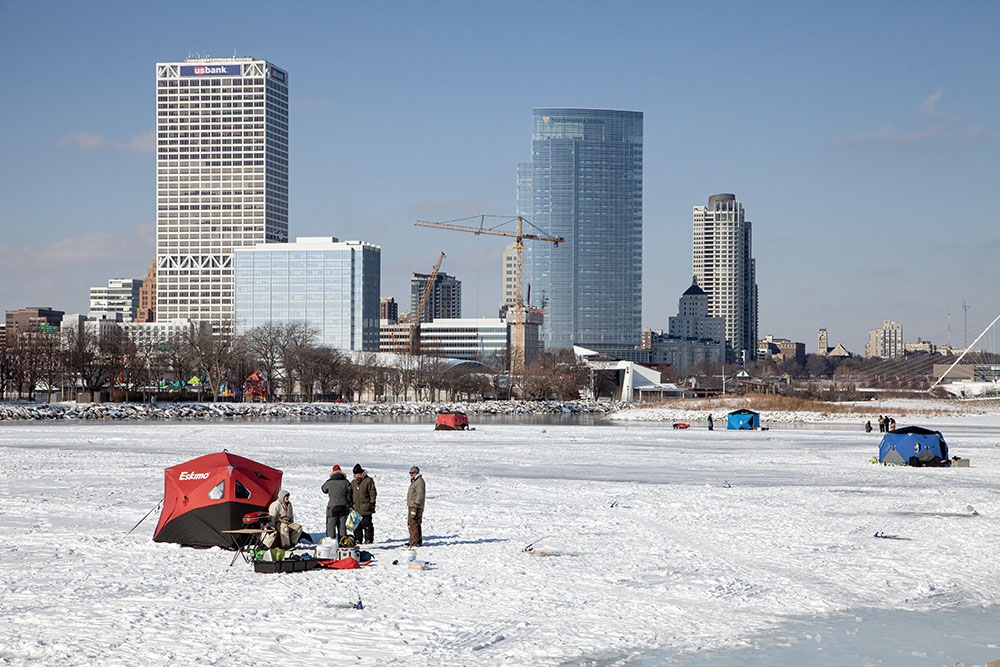
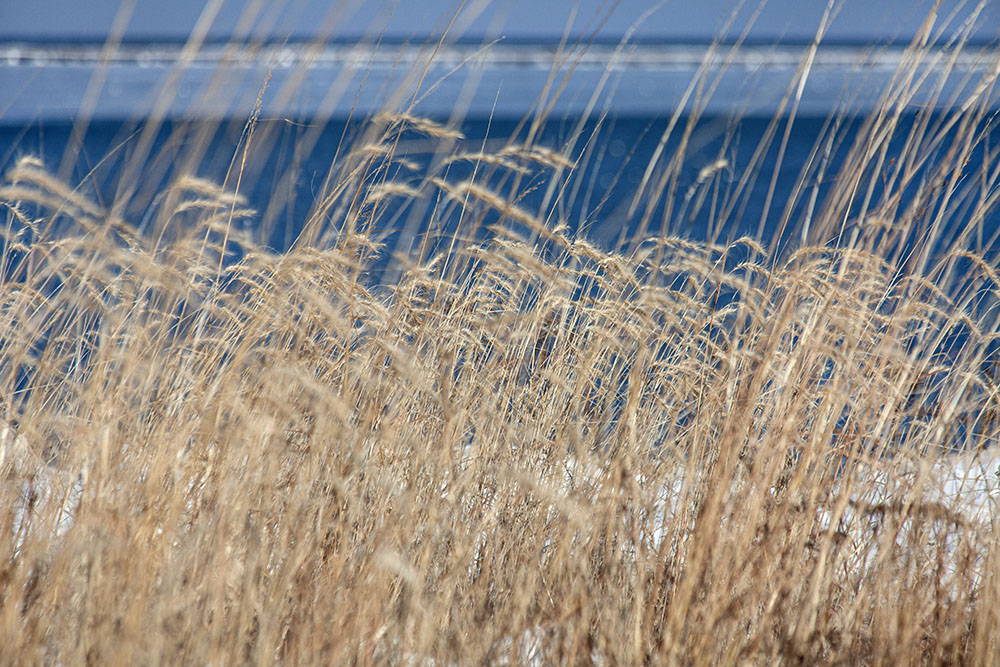
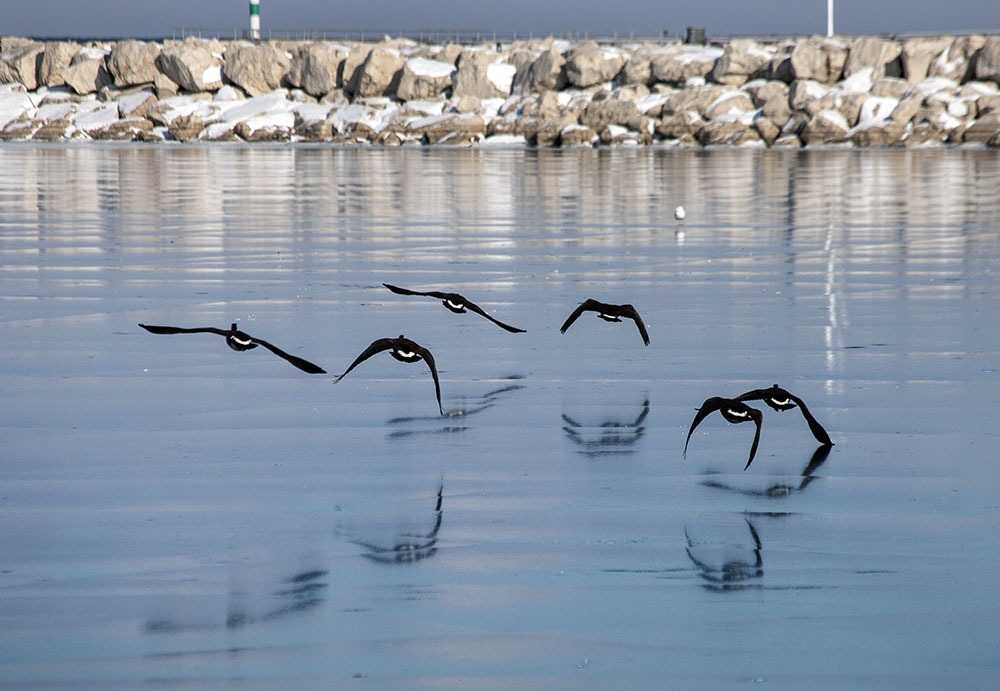
For more information about Lakeshore State Park go to our Find-a-Park page.
Leah Anderson is an educator with the WI Department of Natural Resources at Lakeshore State Park. Eddee Daniel is a board member of Preserve Our Parks. Lakeshore State Park is a project partner of A Wealth of Nature. The featured photo at the top of a groundhog is courtesy WI DNR.
2 thoughts on "Groundhog Day at Lakeshore State Park!"
Comments are closed.


Thanks, Eddee,
Wonderful Pics! Love the groundhog!
Thanks Jan!